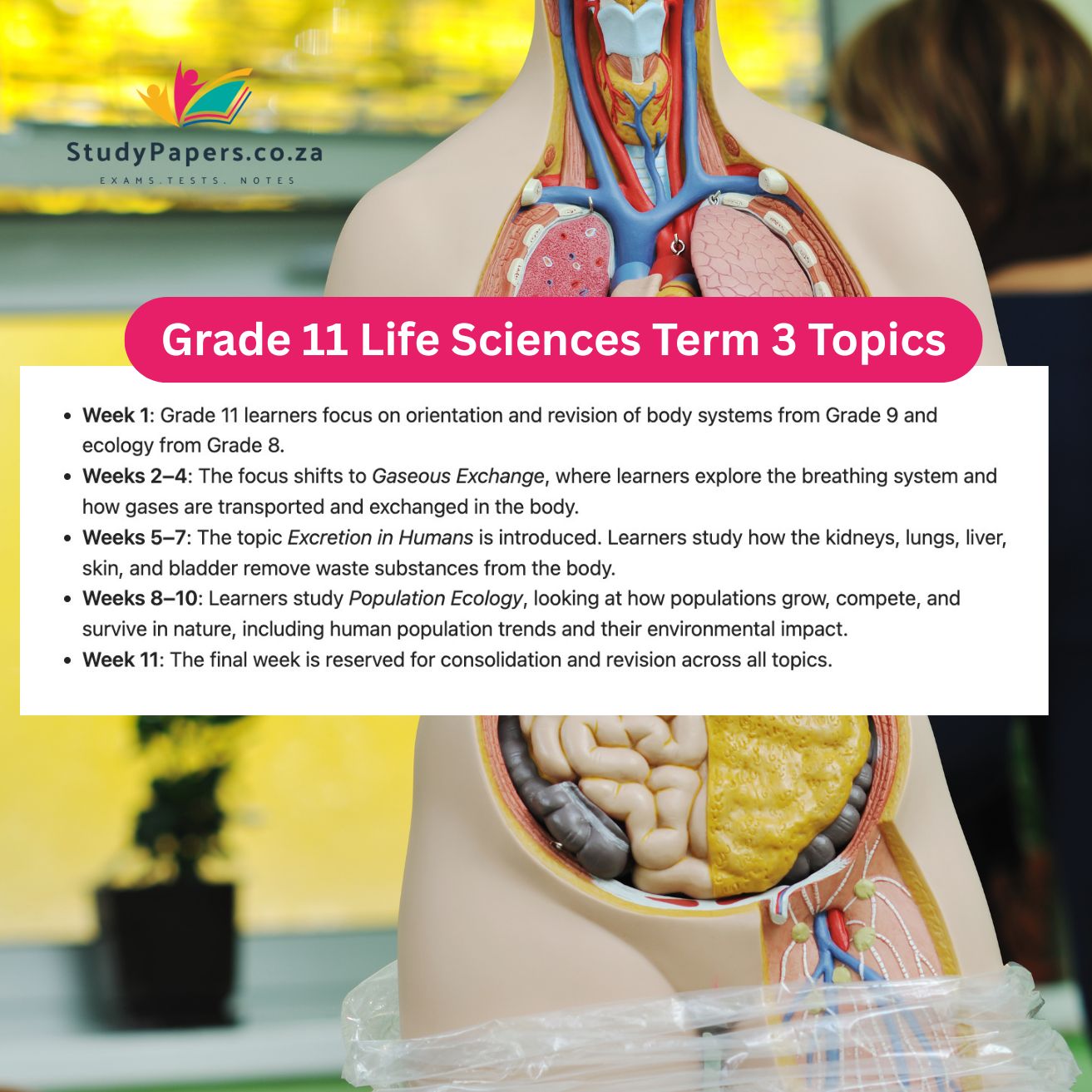On this page, you will find all the major topics which are covered in the Grade 11 Life Sciences curriculum for Term 3. This is especially useful for learners, teachers, and parents who want to keep track of what is taught week by week, along with what is expected in tests, activities, and practical tasks.
To give you an overview:
- Week 1: Grade 11 learners focus on orientation and revision of body systems from Grade 9 and ecology from Grade 8.
- Weeks 2–4: The focus shifts to Gaseous Exchange, where learners explore the breathing system and how gases are transported and exchanged in the body.
- Weeks 5–7: The topic Excretion in Humans is introduced. Learners study how the kidneys, lungs, liver, skin, and bladder remove waste substances from the body.
- Weeks 8–10: Learners study Population Ecology, looking at how populations grow, compete, and survive in nature, including human population trends and their environmental impact.
- Week 11: The final week is reserved for consolidation and revision across all topics.
In the next section, we will go deeper to find out what exactly is assessed under each topic.
Grade 11 Life Sciences Term 3 Topics in Details
Let us go deeper in details of term 3 topics for Life Sciences Grade 11:
Topic 1: Gaseous Exchange
Under Term 3, the first topic which is focused on is Gaseous Exchange.
Under this topic, Grade 11 Life Sciences learners will focus on understanding how gases are exchanged in the human body and why this process is important for survival.
Learners will revise the differences between breathing, gas exchange, and cellular respiration, and explore the structure and function of the human breathing system, including the trachea, lungs, alveoli, diaphragm, and other respiratory parts.
There is also a strong focus on homeostatic control of breathing and analysing data from real-life situations like how altitude affects athletes.
Topic 2: Excretion in Humans
The second topic for Term 3 is Excretion in Humans.
This topic introduces learners to the main organs responsible for removing waste products from the body. Learners will study how the lungs, kidneys, liver, skin, bladder, and gut contribute to excretion.
The structure and function of the urinary system is examined in detail, including the kidneys, ureters, bladder, and urethra.
Special focus is given to the nephron, where the processes of ultrafiltration, reabsorption, and urine formation take place. Learners will also explore how hormones like ADH and aldosterone help regulate water and salt levels in the body.
Topic 3: Population Ecology
The third and final topic in Term 3 is Population Ecology.
In this section, learners will shift focus to the environment and study how different populations of living organisms interact with one another.
Key concepts include population size, carrying capacity, natality and mortality, and the effects of immigration and emigration.
Learners will compare geometric and logistic growth curves, interpret predator-prey graphs, and analyse real examples of ecological interactions such as competition, predation, parasitism, mutualism, and commensalism.
Human population growth and its future impact on South Africa is also covered.
Find all Grade 11 Life Sciences Past Exam Papers Here

